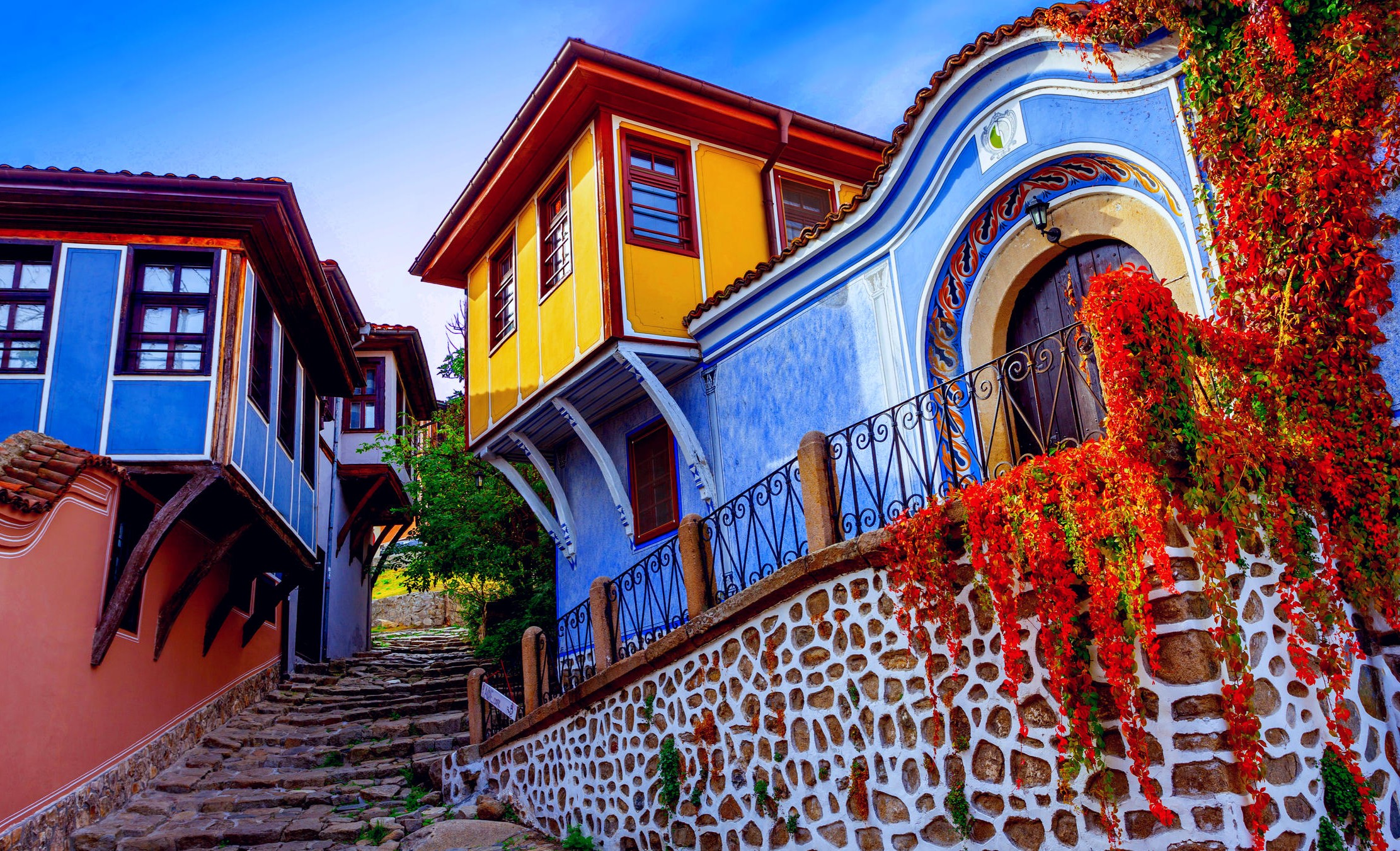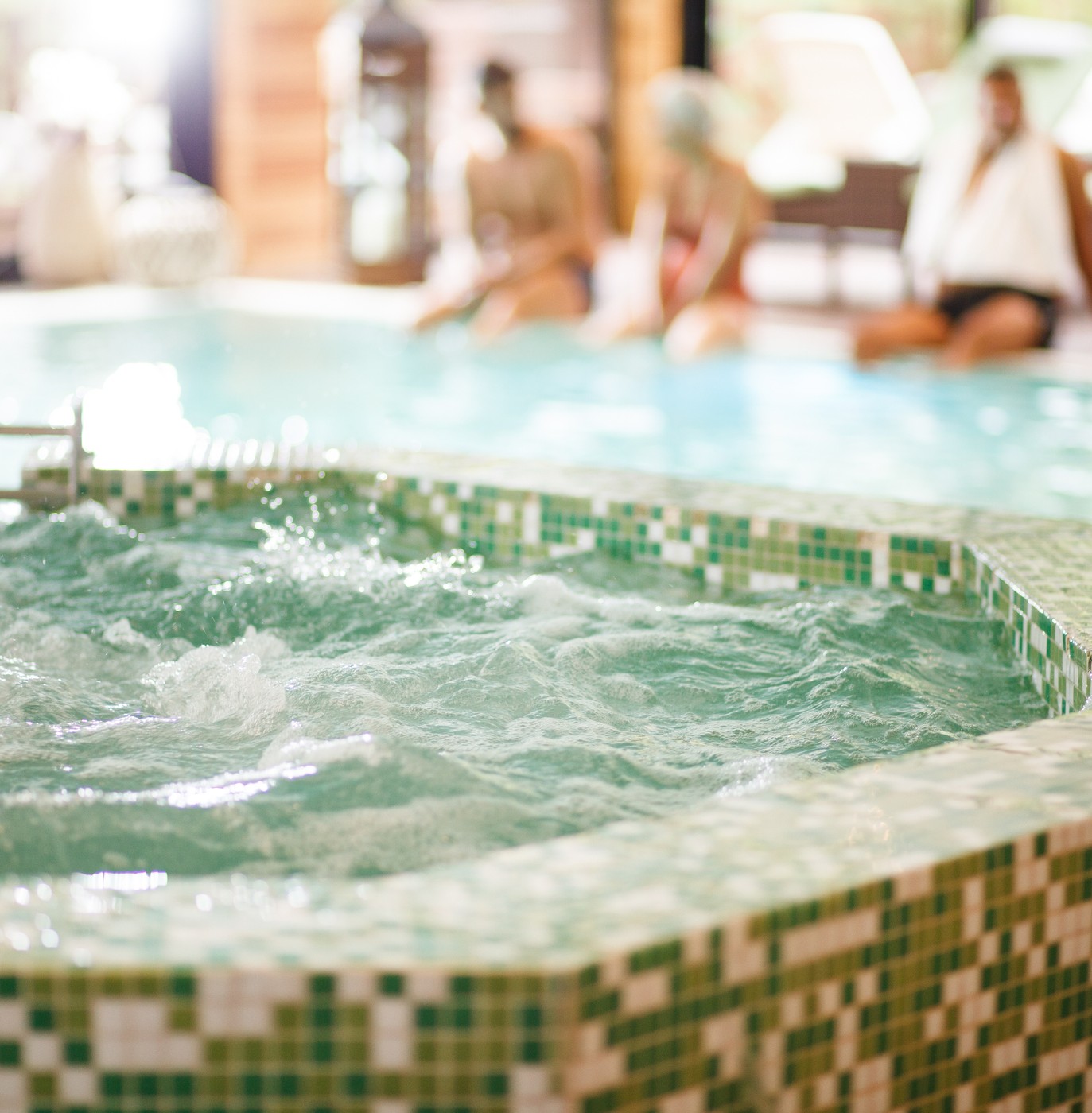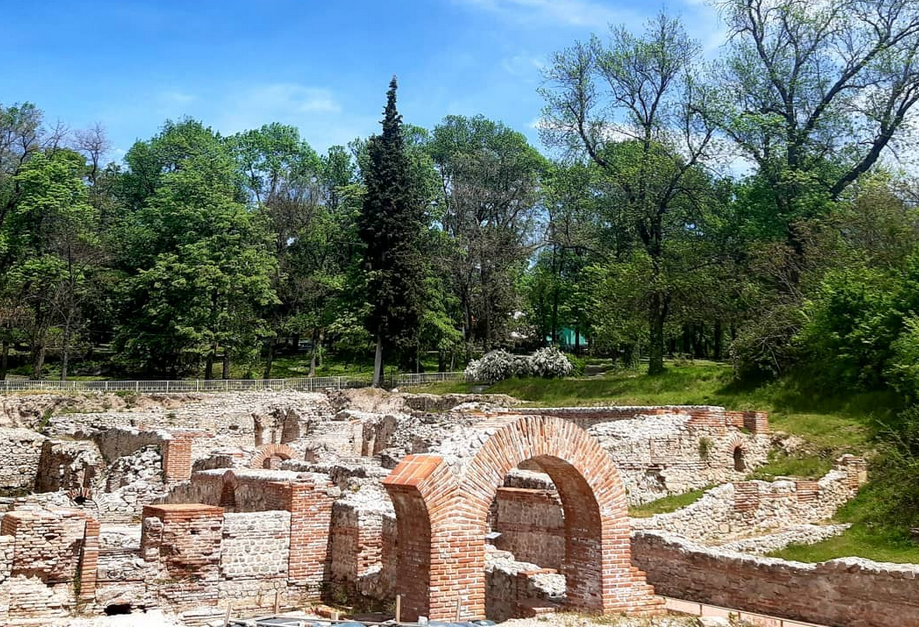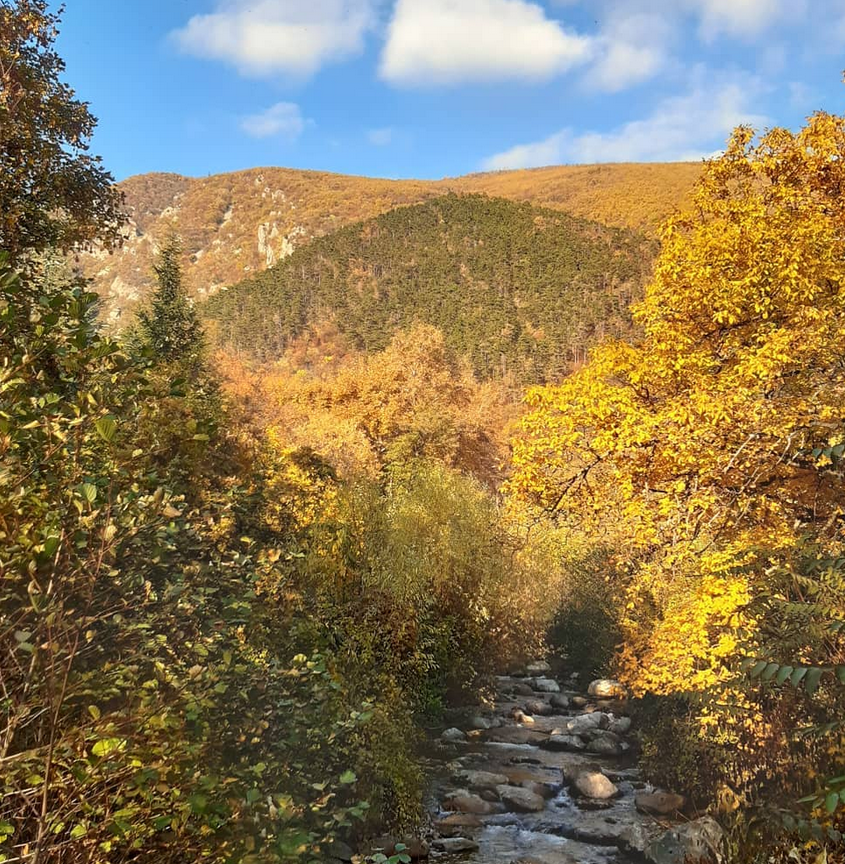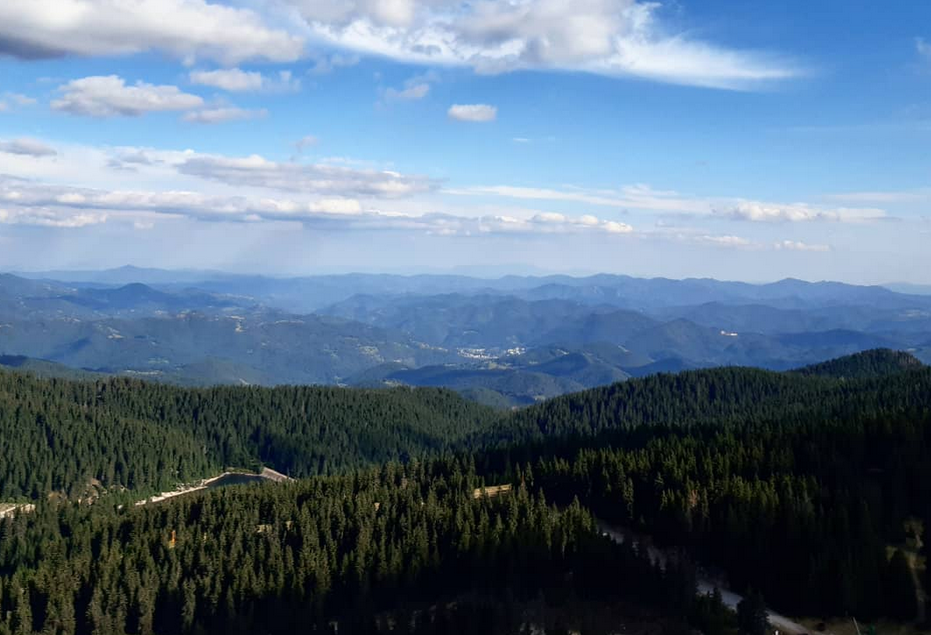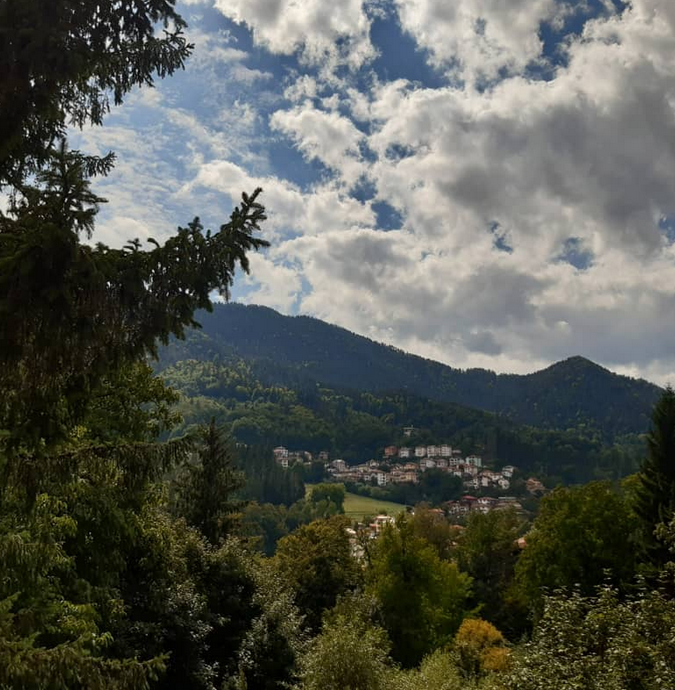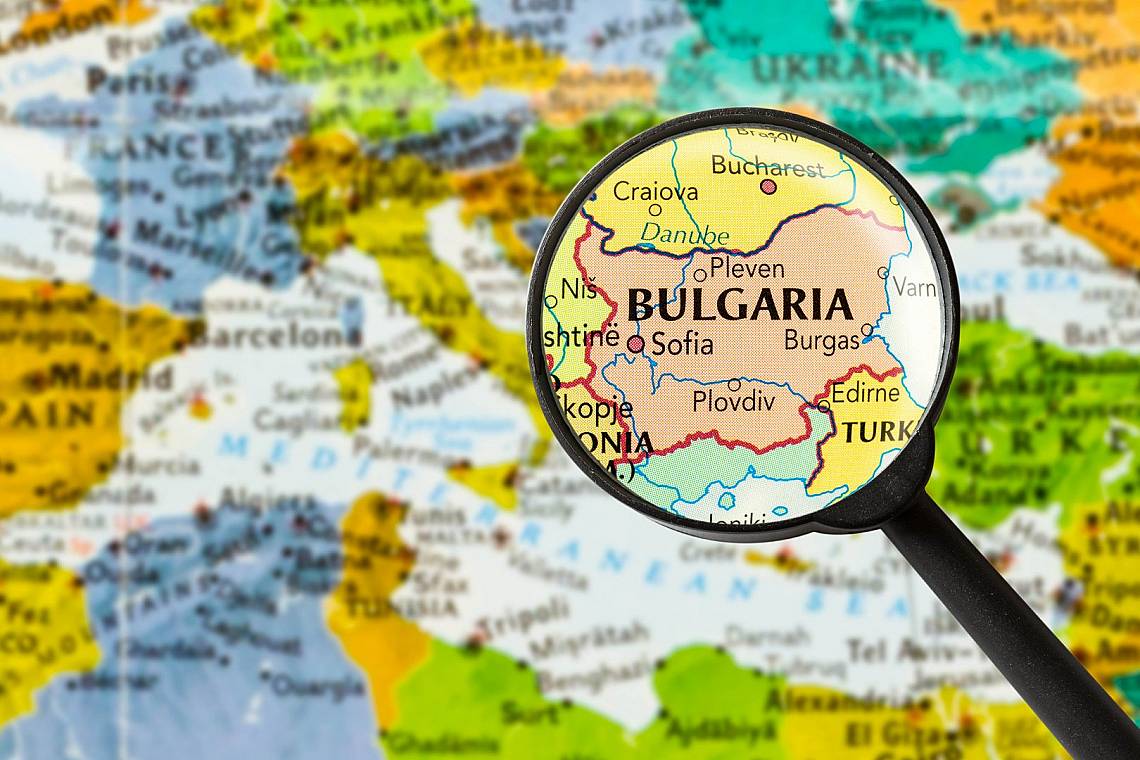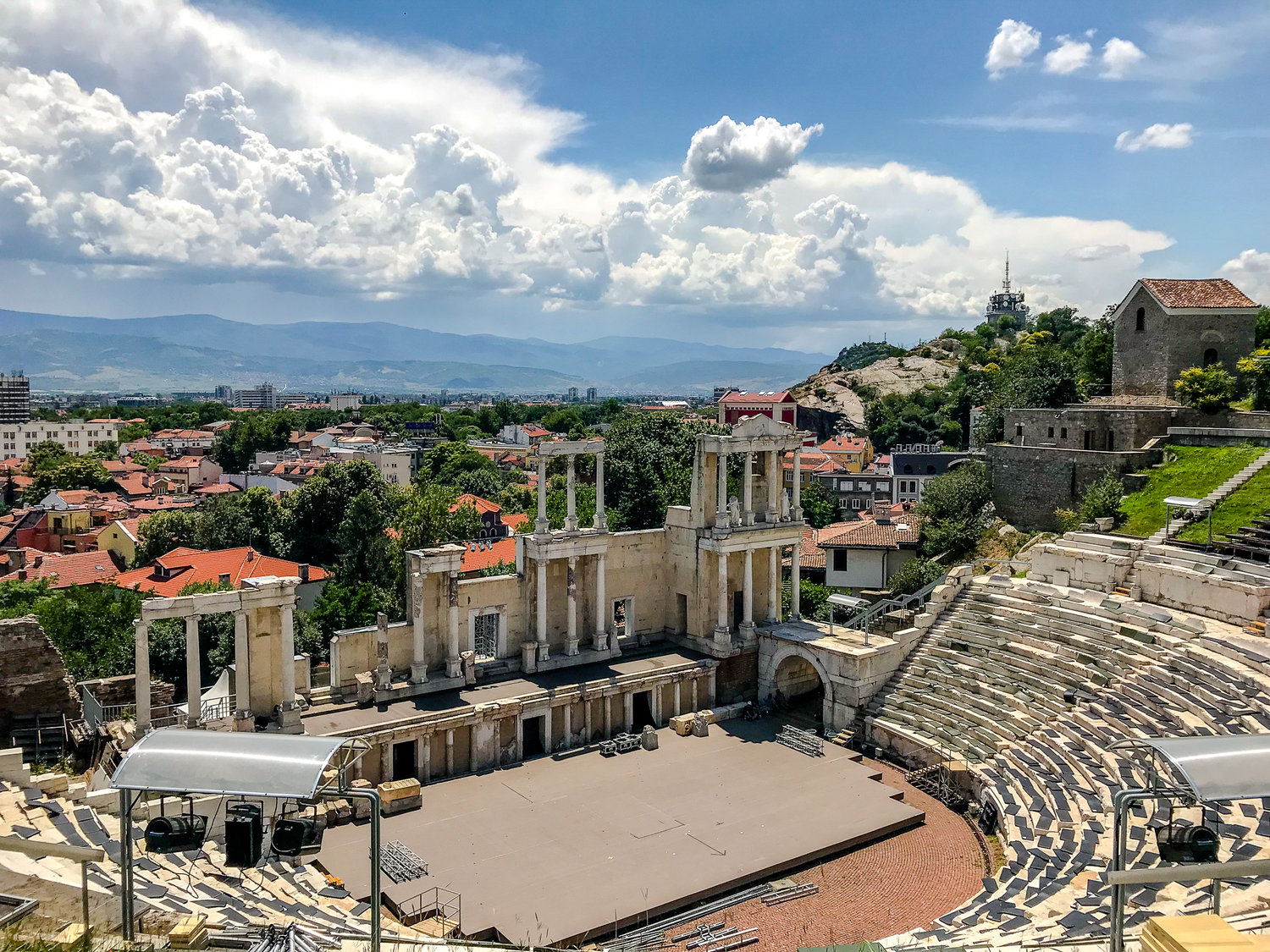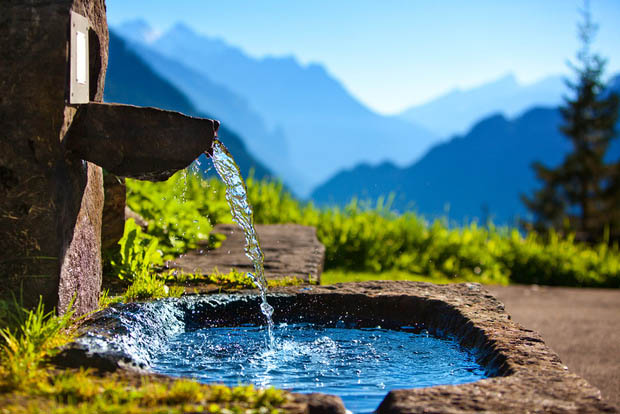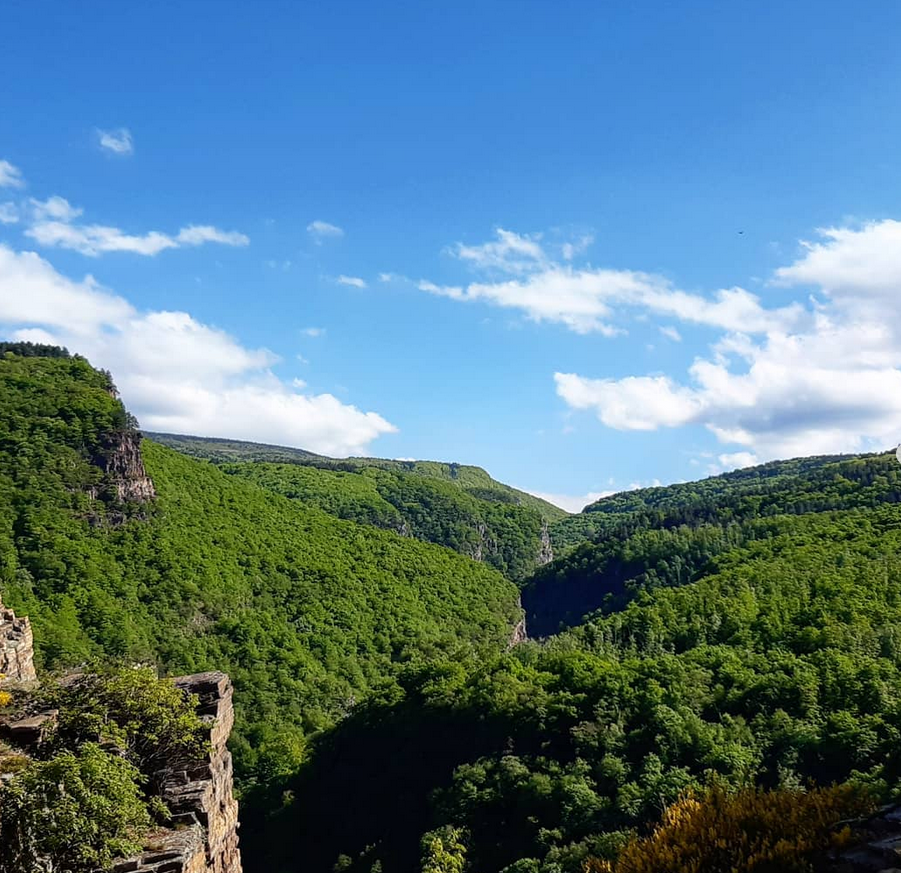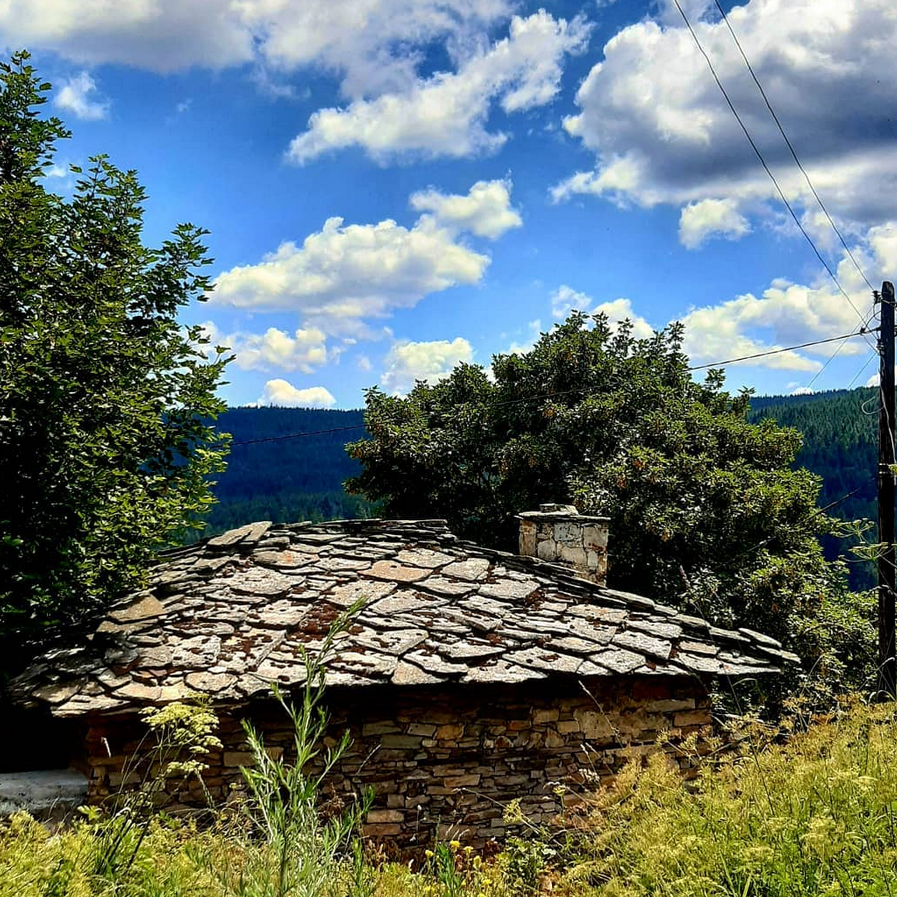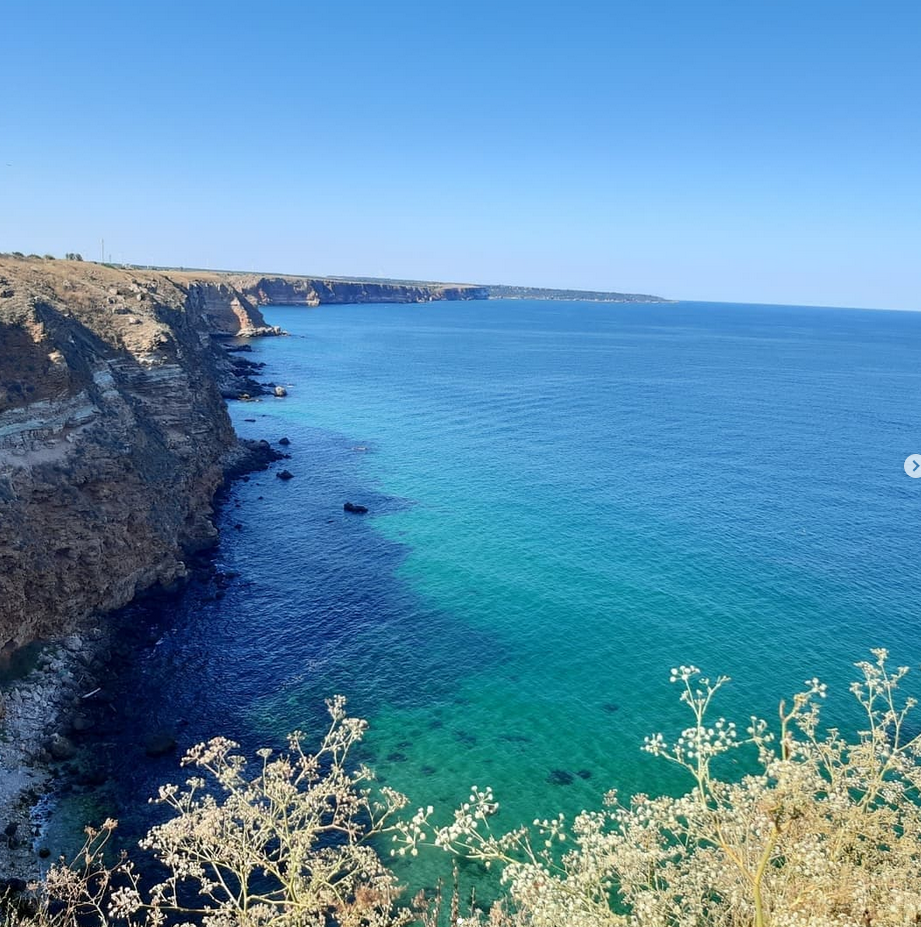Bulgarian history
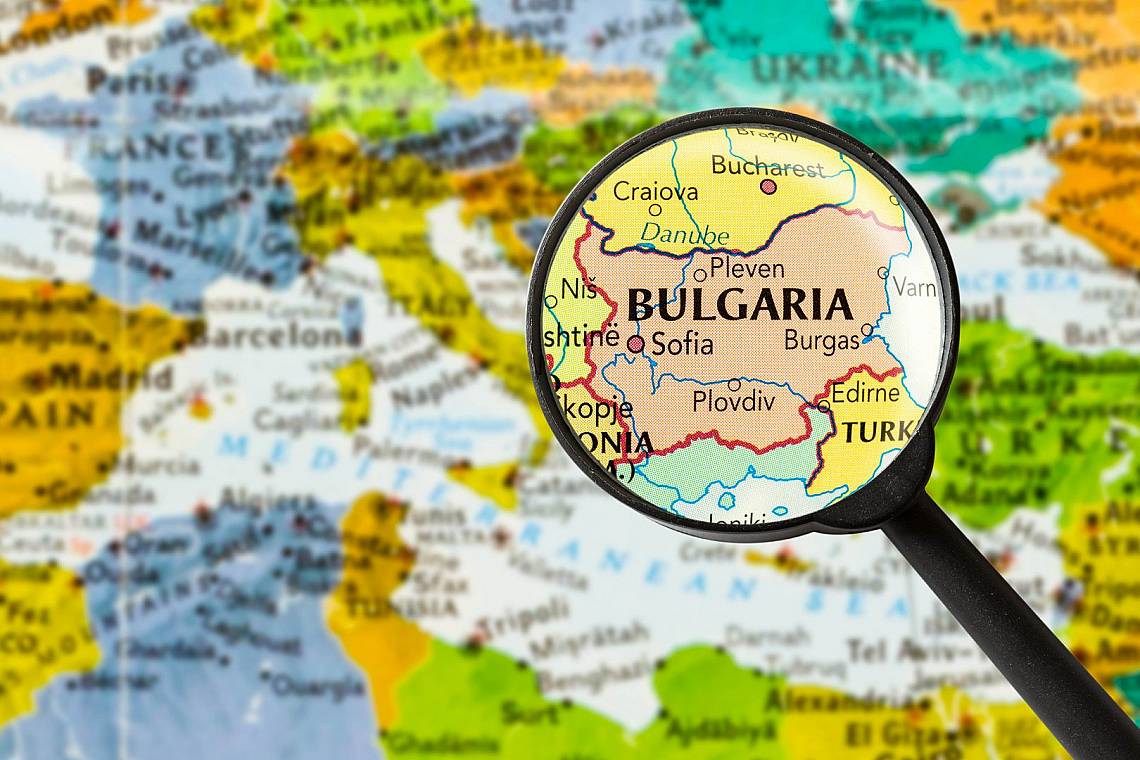
Interesting information
Visit Bulgaria and enjoy the beauty of the country and amzing history!
The Republic of Bulgaria is a country in Southeast Europe. It is located in the eastern part of the Balkan Peninsula. It borders Serbia and northern Macedonia to the west, Romania to the north, Turkey to the southeast, the Black Sea to the east and Greece to the south.
The culture and life of the Bulgarian nation have been formed over millennia. Bulgaria has been inhabited since ancient times. The peoples who lived in these lands - Slavs, Thracians, Romans, Bulgarians - leave their mark on world cultural history. This is where the first European civilization originated. Traditions, holidays and customs are preserved through the Bulgarian memory and testify to the rich culture and history of the Bulgarian people over the centuries.
The earliest data on life on the territory of today's Bulgaria are from 200 - 100 thousand years ago (Paleolithic era). Neanderthal remains about 150,000 years old have been found in the Kozarnika cave on the territory of Bulgaria.
Some of the oldest and most ancient cultural treasures in Europe are located in Bulgaria. The oldest processed gold in the world is the Varna treasure from the 5th - beginning of the 4th millennium BC.
A culture flourishes in Bulgaria, creating the earliest gold ornaments in Europe. In the 6th century, with the arrival of the Slavs and a century later of the Proto-Bulgarians, the process of building the Bulgarian statehood began.
In 681 the First Bulgarian Country was founded, which developed most successfully at the beginning of the 10th century and had a great influence on the peoples of Eastern Europe through its literary schools and literature.
Tourism in Bulgaria
Tourism in Bulgaria is highly developed and in 2020 the number of tourists will reach about 20 million. Winter and summer tourism is successfully developing in Bulgaria. Bulgaria has amazing natural and cultural-historical landmarks.
Health tourism
"Health tourism is a type of specialized tourism that aims to meet the needs of consumers for rest, physical recovery and maintenance of general mental and physical condition in an outpatient setting."
Health tourism is becoming more and more developed and popular nowadays. By offering its tourists the opportunity to combine medical and tourist services for their clients who need change.
Bulgaria is an extremely rich country and is a famous destination for health tourism and prevention. It offers its guests the opportunity for balneological treatment and rehabilitation, mud treatments, rich in many mineral springs, it is among the most popular areas of health tourism in our country.
Many spa resorts in the country offer an exceptional variety of procedures. Bulgaria offers low prices for medical services with professional experience of medical staff and is therefore a preferred destination for health tourism.
Bulgaria is extremely popular among Western Europeans. The country offers advanced sterility treatment, plastic surgery, dentistry, hip replacement and laser eye surgery. All of them are reasonably priced and performed by well-qualified specialists in the country.
Health tourism is one of the most ancient forms of travel. Its initial development is related to balneotherapy.
Since ancient times, people have visited healing mineral springs and treated with healing mud as the main goal was and is to restore the body from a disease or just its hardening.
Nowadays, the procedures that are offered are diverse and extremely useful for the body.
We offer mud therapy, hydrotherapy, paraffin therapy, inhalations, kinesitherapy, therapeutic massage, light therapy, electrotherapy, herbal medicine, music therapy, thalassotherapy, fruit therapy, milk therapy and others.
These procedures are used for the treatment of various diseases, for rehabilitation and recovery of the body after various diseases and for the prevention of healthy people in order to strengthen and harden the body.
Balneo, wellness and spa tourism
Bulgaria is extremely rich in mineral waters. More than 550 localities with 1600 springs have been studied. The use of mineral springs dates back to ancient times. It originates from the Thracians, who were known as excellent healers. The "sacred springs of Thrace" became known throughout the Roman Empire.
Bulgaria is at the forefront of its development and the opportunity to offer services in the field of spa, spa and wellness tourism, due to its exceptional natural resources. The abundance and variety of thermo-mineral waters and mud-healing deposits, it occupies one of the leading places in this type of tourism.
The country's climate is extremely favorable compared to the traditional destinations of spa tourism in Western Europe and the Mediterranean. There are also valuable deposits of estuarine healing mud and healing peat in the country.
The Republic of Bulgaria has 38 spa resorts, 48 climatic mountain resorts and 15 climatic seaside resorts.
All this can be combined with various tourist programs presenting the cultural heritage, traditional cuisine, folklore and traditions of Bulgaria.
Cultural Tourism
Bulgaria has a very rich history and culture and can offer a variety of cultural and historical sites. Here you can see the remains of Roman cities, Byzantine and medieval fortresses, ancient settlement mounds from the Neolithic era, Thracian sanctuaries and tombs, architectural reserves, ethnographic complexes, churches and monasteries and much more.
Although it occupies only 2% of the territory of Europe, about 40,000 historical monuments are registered in Bulgaria (10 of which are on the UNESCO World Heritage List - seven cultural and three natural sites), 36 cultural reserves, 160 monasteries, about 330 museums and galleries.
Other types of tourism
The wonderful location of the country about two hours away from most European capitals and major international airports makes it a great destination for congress tourism.
Bulgaria is an interesting destination because of its natural resources, rich history, traditions and new business opportunities. There are four international airports in the country.
The city of Plovdiv is famous for its international fair, rich history and beautiful sights. Congress tourism is also developing in the capital Sofia. It has numerous hotels and congress halls.
30% of the territory of Bulgaria is occupied by mountains. The nature of Bulgaria is world famous for its exceptional diversity and beauty. It offers excellent opportunities for recreation, sports and entertainment. Bulgaria has excellent conditions for tourism both in winter and in summer.
The duration of the ski season in medium and high mountain resorts is about 130 days. Excellent conditions for winter sports and summer holidays in the cool forests.
Tourists can enjoy the unique nature of Bulgaria - biodiversity, parks, natural attractions, caves, glacial lakes and much more. In Bulgaria there are excellent conditions for all kinds of environmentally friendly activities - walks, hikes.
However, the main and leading idea is always the preservation and protection of nature. In terms of biodiversity, Bulgaria ranks second in Europe. The country exports about 15,000 tons of herbs a year.
Rural tourism is popular in Bulgaria and tourists can touch the traditional way of life and get acquainted with the culture of the country.
They can stay in an old house built in the XIX, XX century and try home-cooked organic food with local products and participate in its preparation.
Tourists have the opportunity to participate in manual milking of cows, fermenting milk, production of cottage cheese and yellow cheese. To walk around the village, ride a horse and enjoy the rich nature.
There are many world famous winemakers and wineries in Bulgaria that guests can visit.
The Bulgarian Black Sea coast is 378 km long and has over 209 beaches. Extremely visited and desired destination. Apart from rest and relaxation, hiking, cycling and horseback riding are also offered. Opportunity to visit cultural, natural and archaeological sites.
